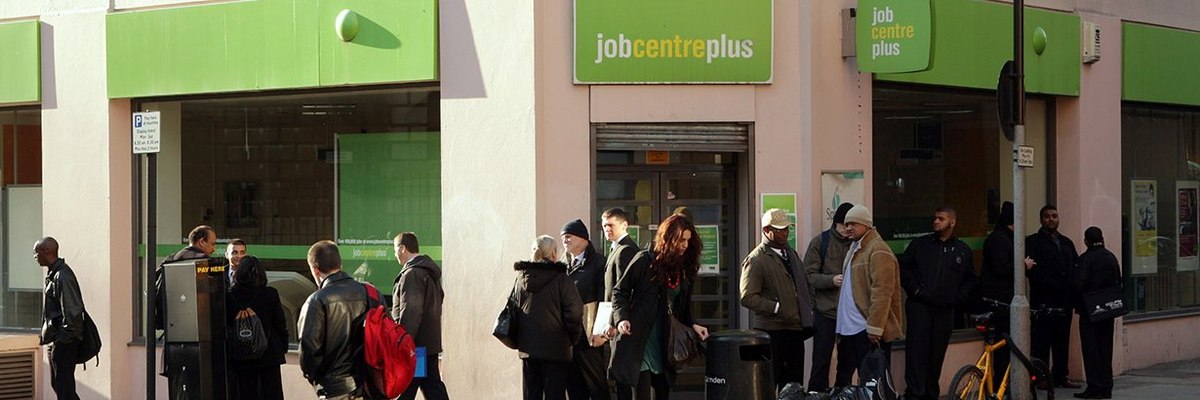Rob de Vries, Ben Baumberg Geiger (University of Kent), Lisa Scullion, David Young (University of Salford), Kate Summers (LSE), Jo Ingold (Deakin University, Australia), Daniel Edmiston, and David Robertshaw (Leeds University) for the Welfare at a (Social) Distance project
There were good reasons to think COVID-19 would increase public support for welfare. It was a time of apparent increased solidarity in the face of a collective crisis; of clearly ‘deserving’ claimants; and of a large increase in the number of people with direct experience of the benefits system.
But did attitudes actually change?
Undoubtedly the best way to test this comes from YouGov’s welfare policy trackers (part of the wider YouGov trackers series). These trackers provide comparable data on public attitudes at regular intervals throughout the pandemic.
We found that COVID-19 prompted little change in public welfare attitudes, as shown for two key measures in Figure 1. Attitudes did become less anti-welfare during the first wave of the pandemic, only to rebound quickly in the summer of 2020. The second COVID wave prompted another small fall in anti-welfare attitudes. However, this appears unlikely to have endured.
When we run statistical tests using the full set of trackers (excluding Christmas waves), we find that the public were less anti-welfare in May 2021 than they were before the pandemic – but only slightly. The extent of the overall change differs between measures (from six percentage points for whether people out of work get too much support; to no change in whether benefit conditions are strict enough), but what is striking is just how small pandemic-associated changes are, especially in the context of recent trends. Figure 2 below shows data from one of the YouGov trackers back in 2013. This shows just how much more pro-welfare attitudes became from 2013 to 2019 (trends in other welfare measures are similar). When viewed this way, pandemic-related trends are very small indeed.
Why didn’t attitudes change?
One possible explanation for this muted change is that the pandemic really hasn’t changed people’s minds in any meaningful way. However, another explanation is that attitudes have changed, but in ways which are invisible to conventional welfare attitude measures.
In our new report, we look at these explanations in detail using a new YouGov survey of welfare attitudes conducted in June 2021. We consistently find that people claiming benefits during COVID-19 are seen by the public as considerably more deserving of benefits than pre-pandemic claimants:
- Half of Britons (50.6%) think that claimants during COVID-19 are more likely than pre-pandemic claimants to be deserving (with only a small minority saying that claimants during COVID-19 are less likely to be deserving)
- People are more than twice as likely to say that pre-pandemic claimants (vs. claimants during COVID-19) were to blame for being unable to find a job, and more than three times as likely to say that pre-pandemic claimants were to blame for losing their jobs
- When asked about a hypothetical claimant, people were nearly twice as likely to say that a pre-pandemic claimant (vs. a claimant during COVID-19) was at least a little to blame for being out of work
(Note that we did not find that pre-pandemic claimants were viewed harshly: these claimants were viewed quite sympathetically, and claimants during COVID simply more so).
Why did a large influx of ‘more deserving’ claimants fail to produce a correspondingly large increase in welfare generosity? The reason seems to be a form of ‘COVID-exceptionalism’. General welfare attitudes appear to be much more closely tied to perceptions of pre-pandemic claimants than to perceptions of claimants during COVID-19. Claimants during COVID-19 are considered to be categorically different from ‘conventional’ claimants, and therefore welfare attitudes are to some extent insulated from sympathetic perceptions of these new claimants.
It would be easy to conclude that, despite COVID-19, the public has little appetite for a more generous welfare system – but there are reasons to suspect this might not be the case. Before the pandemic, attitudes had become more pro-welfare than the UK has seen in 20-30 years. Furthermore, if universal increases in welfare generosity are framed as specifically COVID-related (such as the £20 uplift in Universal Credit), support for increasing benefits is higher still. While this may not necessarily translate into general support, it potentially provides further room for political manoeuvre in the immediate aftermath of the pandemic.
Rather than COVID-19 leading to an automatic transformation of attitudes, we can instead see it as offering discursive opportunities for a more generous benefit system, which political actors may choose to exploit or to counter, and whose resonance will depend on wider contextual factors. As an expert roundtable in June 2020 noted, “There is nothing inevitable about how the welfare state will be reshaped post-crisis… Political control matters” (Burchardt, 2020). The impact of COVID-19 on welfare attitudes and generosity is therefore all to play for.
You can read the full study here: Solidarity in a crisis? Trends in attitudes to benefits during COVID-19
Trackers cited in this article:








